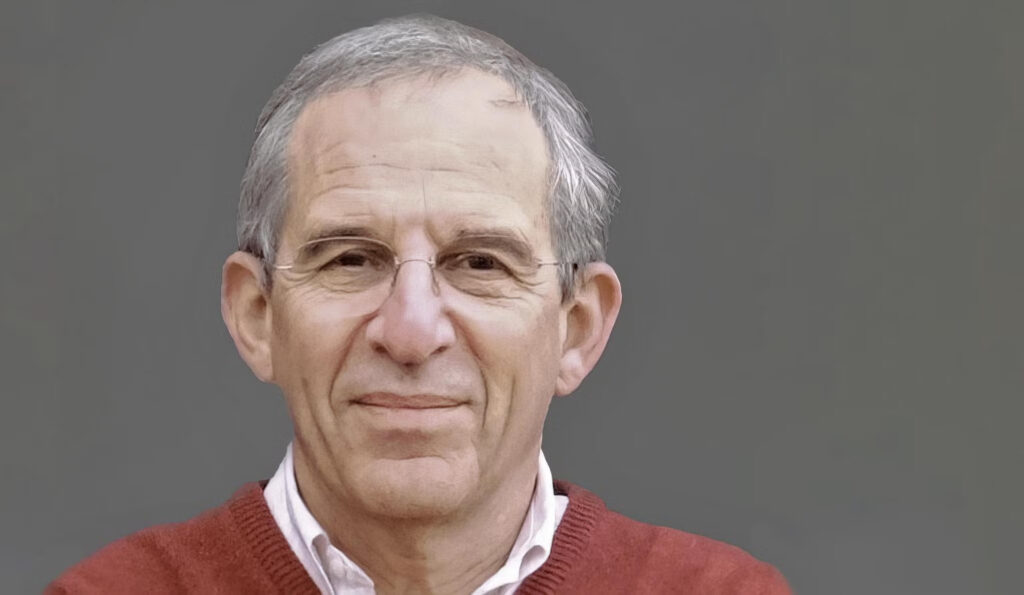Science
Michel Devoret Reflects on Nobel Win and Quantum Physics Journey

Michel Devoret, a prominent physicist and professor emeritus at Yale University, celebrated a significant milestone on September 30, 2023, when he was awarded the Nobel Prize in Physics. He shared this honor with colleagues John Clarke and John Martinis for their groundbreaking work demonstrating that quantum phenomena can be observed in matter on a larger scale. The announcement came as a surprise to Devoret, who initially thought the news was a joke when he saw it trending on his phone.
Currently based at the University of California, Santa Barbara, Devoret serves as the chief scientist for quantum hardware at the Quantum Artificial Intelligence Lab. In an interview following the announcement, he expressed gratitude for the recognition of their field, stating that the award represents the collective effort of countless researchers who have contributed to the development of quantum physics.
Celebrating a Career in Quantum Physics
The media attention surrounding the Nobel Prize was overwhelming for Devoret, who noted, “My profession is not rock star; it’s physicist.” Despite his modesty, he emphasized the importance of acknowledging the achievements in quantum physics, which have garnered more visibility through this accolade. His colleagues at Yale echoed these sentiments, praising his collaborative spirit and intellectual rigor.
Rob Schoelkopf, a professor of applied physics at Yale, remarked on their shared passion for discussing physics and fostering new ideas. Similarly, Steven Girvin, a professor of physics, emphasized Devoret’s clarity of direction in research, highlighting his ability to identify fruitful paths of inquiry.
Devoret expressed his honor in receiving the award alongside Clarke and Martinis, stating, “It’s very nice to be in the company of those exceptional individuals.” This acknowledgment reflects not only his achievements but also the collaborative nature of scientific inquiry.
Lessons from a Lifetime of Research
Devoret’s journey into the world of science began in his childhood in France, where he developed a fascination with electronics, electrical circuits, and computers. Recalling his experiences, he humorously identified himself as what Americans might call a “nerd.” A pivotal moment occurred during high school when he participated in a rocketry club, which he credits with teaching him essential research foundations through hands-on experimentation.
His academic path led him to pursue an undergraduate degree in electrical engineering from the École nationale supérieure des télécommunications, before completing his PhD at the University d’Orsay. Reflecting on the educational systems, Devoret noted the difference in how doctoral degrees are perceived in France and the United States. He mentioned, “A PhD is something really serious in the U.S. It gives you intellectual freedom in a company. It remains unfortunately underappreciated in France.”
After spending 25 years in a French government lab, Devoret transitioned to the U.S., joining Yale in 2002 before moving to Santa Barbara. Throughout his career, he has distilled vital lessons that shape his professional philosophy. One key insight is the importance of teamwork, which he recognized early on while working as a summer camp counselor.
Devoret advises graduate students to learn from both their mistakes and those of others to avoid repeating them. He emphasizes the significance of attention to detail, insisting on neat presentations and accurately labeled graphs, which he believes contribute to the professionalism and credibility of scientific work.
His research approach is purposeful; he insists that it should not resemble a “hammer in search of a nail.” Instead, he advocates for starting with a specific problem and developing solutions around it. For example, he posed the question, “What kind of metallic object can I make that would connect two pieces of wood?”
At the University of California, Santa Barbara, Devoret continues to explore quantum sensing, focusing on new analysis techniques that investigate matter at the atomic level. His collaboration with Google further involves guiding the company as it ventures into the quantum age.
Looking ahead, Devoret acknowledged the challenges of forecasting technological advancements. “Technology forecasting is even harder than forecasting the weather,” he remarked. Despite the cyclical nature of technological developments, he remains optimistic about the future of quantum technology, stating, “This field that we started has interested a lot of people. They have made fantastic contributions.”
Through his impressive career, Michel Devoret has not only advanced the field of quantum physics but has also imparted invaluable lessons about collaboration, attention to detail, and the pursuit of knowledge.
-

 Lifestyle3 months ago
Lifestyle3 months agoLibraries Challenge Rising E-Book Costs Amid Growing Demand
-

 Sports3 months ago
Sports3 months agoTyreek Hill Responds to Tua Tagovailoa’s Comments on Team Dynamics
-

 Sports3 months ago
Sports3 months agoLiverpool Secures Agreement to Sign Young Striker Will Wright
-

 Lifestyle3 months ago
Lifestyle3 months agoSave Your Split Tomatoes: Expert Tips for Gardeners
-

 Lifestyle3 months ago
Lifestyle3 months agoPrincess Beatrice’s Daughter Athena Joins Siblings at London Parade
-

 World3 months ago
World3 months agoWinter Storms Lash New South Wales with Snow, Flood Risks
-

 Science3 months ago
Science3 months agoTrump Administration Moves to Repeal Key Climate Regulation
-

 Science2 months ago
Science2 months agoSan Francisco Hosts Unique Contest to Identify “Performative Males”
-

 Business3 months ago
Business3 months agoSoFi Technologies Shares Slip 2% Following Insider Stock Sale
-

 Science3 months ago
Science3 months agoNew Tool Reveals Link Between Horse Coat Condition and Parasites
-

 Sports3 months ago
Sports3 months agoElon Musk Sculpture Travels From Utah to Yosemite National Park
-

 Science4 months ago
Science4 months agoNew Study Confirms Humans Transported Stonehenge Bluestones









